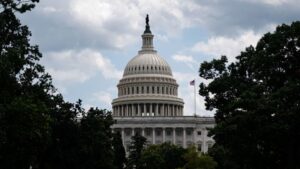In a recent report from the Public Accounts Committee (PAC), Members of Parliament (MPs) expressed frustration over the government’s inadequate actions regarding the compensation of individuals affected by the Post Office scandal. This situation has been especially concerning, as many of the wrongly accused sub-postmasters are still awaiting fair compensation for their suffering. The PAC’s analysis has drawn attention to the government’s apparent lack of urgency in addressing these unresolved claims, indicating that substantial steps still need to be taken to rectify the situation.
The PAC highlighted that the government has not established any current plans to follow up with eligible individuals regarding their compensation claims. A staggering statistic indicates that only one in five letters sent by the government to inform sub-postmasters about their compensation options elicited a response. This suggests a significant gap in communication that may hinder potential claimants from pursuing their rightful claims. Although the Department for Business and Trade reported that over £1 billion in compensation has been distributed so far, the committee raised serious concerns about the adequacy of this process.
The report underscores that there are four primary schemes available for sub-postmasters to apply for compensation. However, the effectiveness of these schemes in facilitating timely payouts remains questionable. From 1999 to 2015, over 900 sub-postmasters faced wrongful prosecution due to issues stemming from the flawed Horizon IT system. This system inaccurately indicated that money was missing from branch accounts, leading to severe consequences including wrongful imprisonment and significant financial loss for many individuals. Unfortunately, some victims did not live long enough to see justice served, underscoring the abhorrent impact of these miscarriages of justice.
Dubbed one of the most significant miscarriages of justice in British legal history, the Post Office scandal continues to cast a long shadow, with many victims still in search of financial restitution. The report delineates that the PAC found no clear directive from the government regarding how to address individuals who may have compensation claims but have not yet acted upon them. This raises concerns about the accessibility of information surrounding the compensation process and leaves many victims ignorant of their rights.
Sir Geoffrey Clifton-Brown, the PAC chair, articulated a sense of urgency and disappointment in the slow progress of compensation disbursement. He emphasized the unacceptable reality that many individuals affected by the scandal have resorted to legal avenues to clear their names, reiterating the need for a more efficient and responsive framework for delivering compensation. The PAC’s recommendations signal a need for the government to ensure that every postmaster is fully educated about their entitlements and the processes available for claiming compensation.
The Department for Business stated its intent to consider the PAC’s recommendations and work collaboratively with the Post Office to ensure that everyone potentially eligible for compensation is made aware of their opportunities to apply. However, critics, such as Chris Head, a former sub-postmaster wronged by the system, have raised concerns about the operational efficiency of these compensation mechanisms. Head called attention to the stark inequities within the compensation distributions, wherein the most severely affected individuals have not yet received the redress they are due, outlining that such disparities undermine confidence in the entire compensation system.
Furthermore, the PAC’s report also addressed issues with the recovery efforts concerning fraudulent losses related to the Bounce Back Loan Scheme implemented during the pandemic. The MP’s described the government’s actions to recoup an estimated £1.9 billion lost to fraud in the scheme as largely ineffective, citing that only a mere £130 million had been recovered. The report criticized the government’s reliance on lenders to take the initiative to recover losses, pointing out that with the government covering 100% of lenders’ losses, there is little motivation for these lenders to pursue recovery processes actively.
Taken together, these findings from the PAC highlight a pressing need for the government to address both the compensation of those affected by the Post Office scandal and the recovery of losses linked to pandemic-related fraud. As the inquiry into the Post Office scandal continues, it is clear that both accountability and systemic reform are essential to restoring confidence in the justice and compensation systems.











